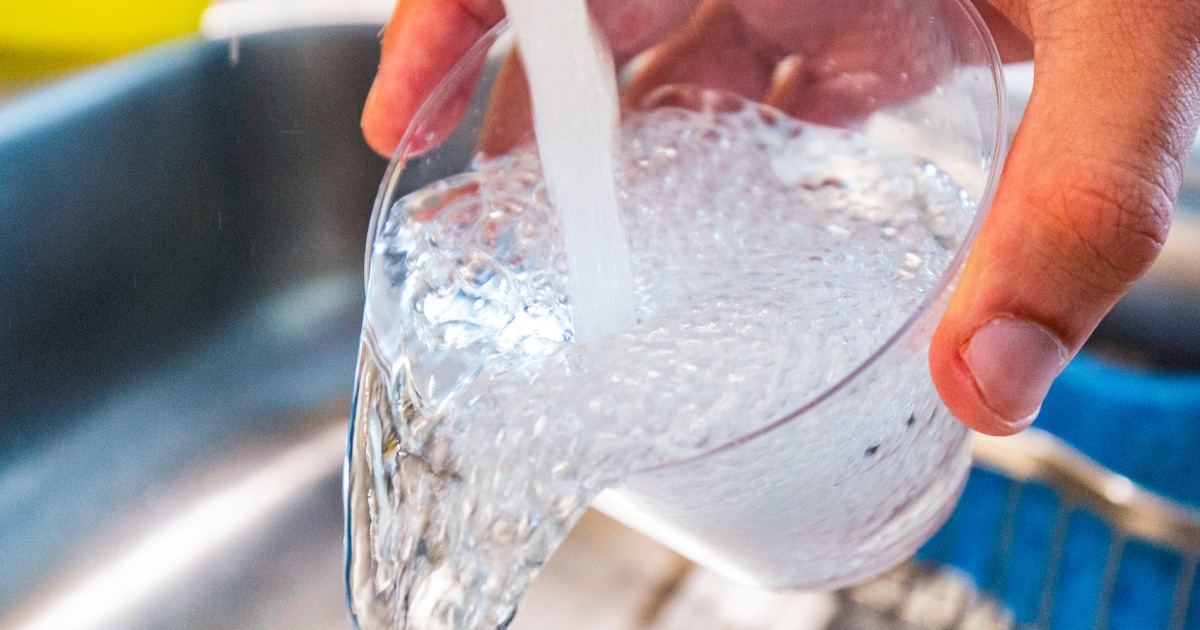A bill to ban the use of the mineral in public water passed the Florida House 88-27. It now awaits Gov. Ron DeSantis’ signature.
Lawmakers in Florida gave final passage to a bill to ban fluoride in public water systems Tuesday, with the state House voting 88-27.
SB 700, also known as the Florida Farm Bill, doesn’t mention the word “fluoride,” but it would effectively ban the chemical compound by preventing “the use of certain additives in a water system.” The bill awaits Gov. Ron DeSantis’ signature.
If DeSantis, a Republican, signs the bill, Florida will become the second state to ban fluoride from water supplies.



I feel like I was pretty resoundingly disputing that bit, because it’s not a true statement. Concentration matters. A substance not being readily eliminated from the body is just one way for a concentration to become high enough to do harm.
Yes. Sometimes science misses an outcome. It’s entirely about balancing risks with benefits. The risk of chlorine as a water additive is low, because we’ve studied it, there’s no theoretical mechanism, and it’s been in use for several generations with no ill effects. The benefits are cost effective clean drinking water.
There is nothing inaccurate about stating poison is poison. You’re arguing the poison will not have an effect. That does not mean anything about its chemical structure or toxic properties have changed.
There is a reason the LD50 is listed. It shows a what concentration will kill a species of animal, usually mice. This is not entire analogous to humans but we accept this is the only practice that is maybe acceptable.
We do not test on humans and there is no blind study to show there are no longterm effects of consuming trace amounts of chlorine in water.
It’s quite inaccurate to say that “poison is poison”, because it’s entirely a matter of the effect it has in the body. Is water poisonous? It doesn’t take a huge amount to disrupt bodily functions and kill you. Ironically for the conversation, one of the key things disrupted by water poisoning is the balance of chlorine ions in nerves.
So is water poisonous even though we rarely consume it in toxic amounts?
Is chlorine not poisonous because we require a quantity of it to live?
Or, maybe, poison is better used for a substance that is or will cause disruption to functions if introduced to the body. A glass of water isn’t poisonous, but a 5 gallon jug is. A full fox glove plant is poisonous, but a trace of the digitalis it contains is medicine.
I’m not sure why we would need a blind study of chlorine in water. We can just look at aggregate health trends in several populations. A blind is necessary when researchers are performing an intervention, but if you’re not intervening you don’t need one, just a way to deal with possible confounding variables. A typical one is “observational populations large enough to cover almost all variables”, like you get by looking at population aggregated health data across entire countries.
It how we gauge the effectiveness of things like flossing and brushing your teeth where it’s considered unethical to require a subject to forgo a procedure believed to be beneficial. It’s not like you learn nothing just because your methodology didn’t eliminate every confounder.
Again, you’re talking about a dilution. Is a glass of water with trace amount of chlorine, chlorine?
I’d gladly review any study, that you’re aware of, that states there are no longer term effects of drinking trace amounts of chlorine. That is, since it’s such a walk in the park to do.
https://en.wikipedia.org/wiki/Toxicity
Maybe reading it somewhere else will help you get it.
Yes, lower concentrations of a poison make it not a poison.
Do you think pure water is toxic because it can kill you if you drink too much?
https://www.epa.gov/sites/default/files/2015-09/documents/dwchloramine.pdf
https://www.epa.gov/dwreginfo/related-research-chloramines-drinking-water
That’s from just basic googling, so yeah, I’d say it’s pretty easy to find at least moderately compelling evidence.
Don’t forget some studies on the benefits:
https://pubmed.ncbi.nlm.nih.gov/15782893/ https://pubmed.ncbi.nlm.nih.gov/10176376/
As well as on general chlorine safety: https://www.ncbi.nlm.nih.gov/books/NBK598756/